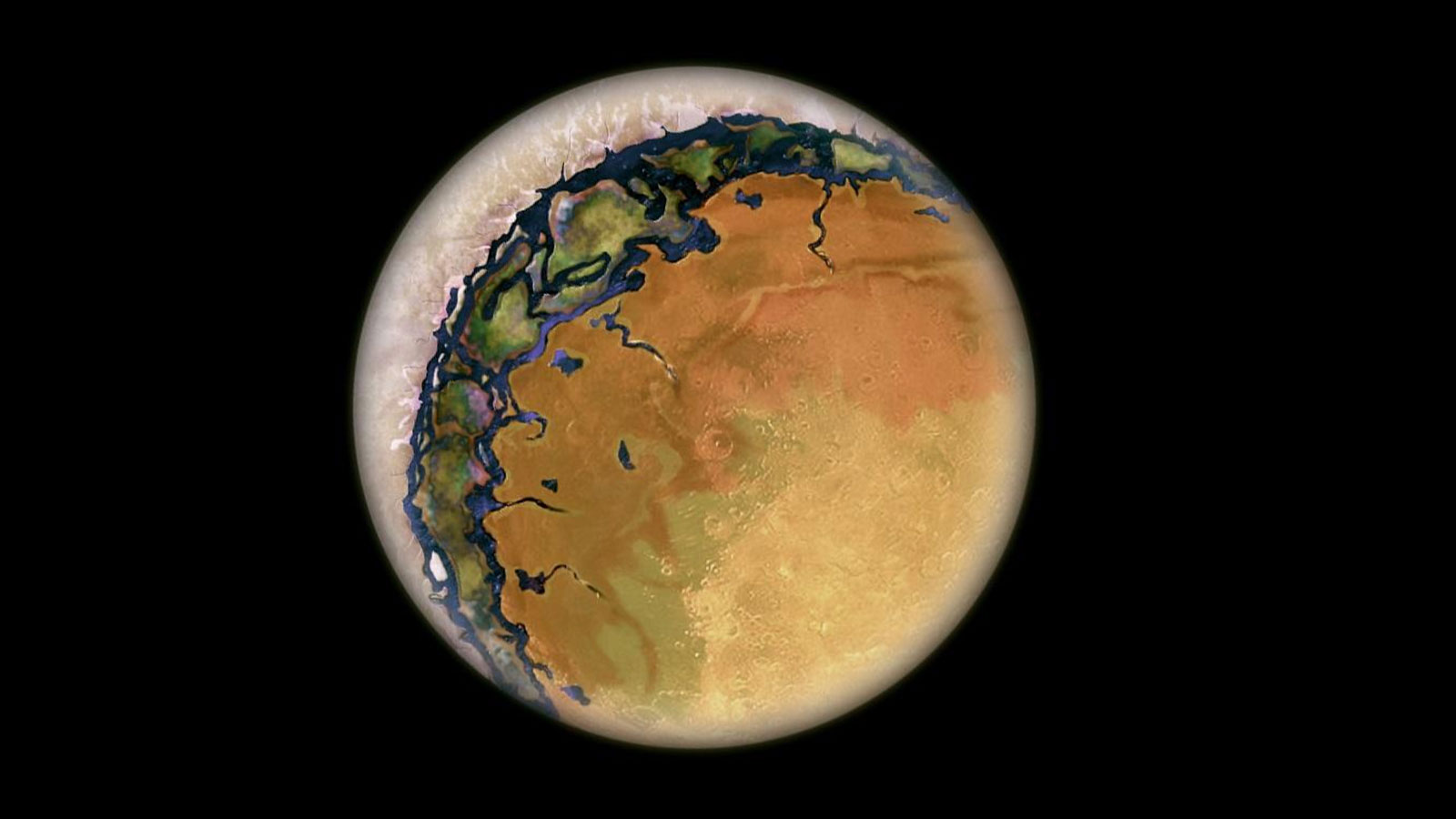
I'm fascinated by painting of an extrasolar planet, credited to "Beau.TheConsortium" and apparently first posted to
this SF Wiki. They're called "eyeball planets" -- similar to Earth, but tidally locked with their star, creating a vast polar ice cap on the dark side, a scorching desert facing the sun, and a band around the center where water melts from one side to the other and life happens. The extremes involved have made them
a hot topic among those searching for life. The sweet spot—let's call it the "ring of life"—is at the terminator, the boundary between night and day. The ring of life is bounded by deserts on one side and ice on the other. There is a constant flow of water from the night side to the day side—a series of rivers, all flowing in the same direction. The Sun is fixed in the sky right at the horizon, and the area is in permanent light. Conditions are pretty much the same all the way across the ring of life. One can imagine vegetation following the rivers onto the day side until they dry up, with different ecosystems interspersed along the way. There could be mountains at the edge of the ice sheets, since the ice-covered continents would be heavily weighed down



